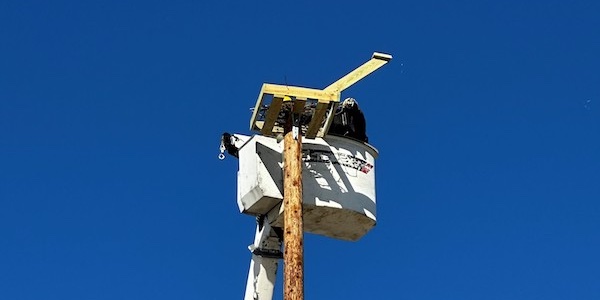About the Project
Environment

CMP is committed to meeting high standards of environmental stewardship in the communities we serve, and to conducting business in a manner that minimizes adverse environmental impacts, including wildlife and nesting birds. Here are the steps we are taking on the Section 80 rebuild project.
Ground mats:
Used in our right of way (ROW), and especially in environmentally sensitive areas, they safely disburse the weight of construction vehicles as to not disrupt the land below them.
Trees and Vegetation:
The new line will be closer to our ROW boundaries. We will be removing or trimming trees and vegetation within our 150-foot ROW to reduce the possibility of storm-related damages and outages. We may need to talk to landowners about trees or branches outside the ROW that could pose a danger to the line.
Osprey and Wildlife:
Seven known osprey nests reside along the Windsor and Jefferson portions of Section 80. CMP investigated the nests for recent activity or stability and safely relocated viable nests to platform poles we installed near the same location, as best as possible.
Osprey nests on transmission lines pose a risk to the safe and reliable operation of our transmission system. When planning to rebuild a transmission line, we proactively identify and avoid negative outcomes and wildlife interactions that could arise.
For more information, please see the Osprey FAQs.
Get in touch
For more information about CMP’s Section 80 transmission line rebuild, please contact Public Outreach